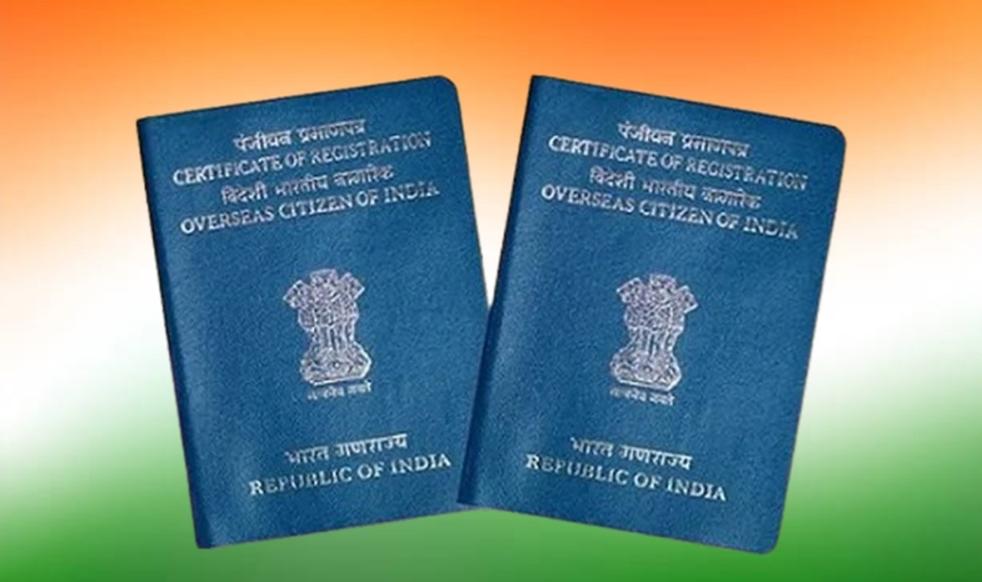New Delhi: The Ministry of Home Affairs (MHA) has issued a new gazette notification tightening the rules governing the Overseas Citizen of India (OCI) card. Under the revised framework, an OCI registration may now be cancelled if the cardholder is convicted of a serious criminal offence or even formally charge-sheeted in cases involving grave charges.
What is an OCI Card?
Introduced in August 2005, the OCI scheme allows eligible foreign nationals of Indian origin to travel to India without a visa, offering multiple-entry, long-term residency benefits.
Eligibility:
- Open to individuals who were citizens of India on or after January 26, 1950, or were eligible to become citizens on that date.
- Excludes current or former citizens of Pakistan, Bangladesh, or any other country specified by the Government of India.
- Offers parity with Non-Resident Indians (NRIs) in most economic, financial, and educational fields, though with certain exceptions.
As of today, over 5 lakh individuals hold OCI cards worldwide.
The New Rules
The MHA has exercised its powers under clause (da) of Section 7D of the Citizenship Act, 1955 to expand the grounds for cancellation.
Grounds for Cancellation
- Conviction and Jail Term: An OCI card can be cancelled if the holder is convicted and sentenced to imprisonment of two years or more in any country (not only in India), provided the offence is recognized under Indian law.
- Charge-Sheet in Serious Offences: Even without a concluded trial, OCI registration may be cancelled if the cardholder has been formally charge-sheeted for an offence carrying a punishment of seven years or more.
Previously, OCI cancellations were restricted to convictions within the first five years of registration. The removal of this temporal limit means that cancellation can now occur at any point in the cardholder’s lifetime.
Government’s Rationale
According to MHA officials (via ANI), the new rules aim to:
- Safeguard the integrity of the OCI scheme.
- Ensure OCI holders uphold high standards of conduct and moral responsibility, both in India and abroad.
- Reflect India’s emphasis on sovereignty, security, and public interest, by considering offences committed globally if they are recognised under Indian law.
The shift represents a broader policy trend: stricter scrutiny, enhanced accountability, and a clear message that OCI status is a privilege, not an entitlement.
Concerns Within the Diaspora
While the government defends the move as necessary, the rules have triggered unease among Indian-origin communities abroad.
- Impact on Diaspora Confidence: Tighter rules could discourage individuals from applying for or retaining OCI cards, and may also affect investment and long-term engagement with India.
- Implementation Challenges:
- Global Legal Variations: What qualifies as a crime, the burden of proof, and standards of evidence differ widely across jurisdictions. OCI cancellation based on foreign convictions or charges may therefore be inconsistent or unfair.
- Due Process Issues: Cancelling an OCI card merely on the basis of a charge-sheet (before trial and verdict) risks undermining the principle of “innocent until proven guilty.”
- Risk of Misuse: Broad discretionary powers may allow authorities to interpret cases subjectively, leading to arbitrary or discriminatory outcomes.
Criticism and Expert Opinion
Experts highlight that the new rules revive the “privilege vs. right” debate:
- The government stresses that OCI is a privilege, not a legal right, and thus not bound by the same due-process safeguards as citizenship.
- Critics argue that many OCI holders have deep family, cultural, and financial ties to India, and revoking their status without robust legal protections could be unjust.
Concerns include:
- Weaponisation of Legal Processes: Weak or politically motivated foreign charges could be used to silence activists, journalists, or government critics abroad.
- Chilling Effect on Free Speech: Fear of cancellation may discourage dissent or open criticism of government policies among the diaspora.
Comparative Perspective
Globally, most countries treat residency permits as protected legal rights with strong procedural safeguards. Cancellation typically occurs only after a conviction, with guaranteed rights to appeal.
India’s approach is comparatively stricter:
- OCI status is treated more like a conditional visa, revocable at the government’s discretion.
- The inclusion of cancellation based on mere charge-sheeting, and recognition of offences anywhere in the world, makes India’s framework one of the toughest in the world.
This reflects India’s emphasis on sovereignty and security, but raises key questions about fairness, due process, and diaspora confidence.
Conclusion
The updated OCI cancellation rules mark a decisive shift in India’s engagement with its global diaspora—prioritizing security and accountability over long-standing privileges.
While the government asserts this is necessary to protect national interests, the diaspora fears the possibility of arbitrary cancellations, unfair targeting, and erosion of trust.
Balancing national security with diaspora inclusion remains a pressing challenge. As India continues to strengthen its global diaspora links, ensuring fair legal safeguards and transparent implementation will be crucial in maintaining confidence in the OCI scheme.



Leave a Reply